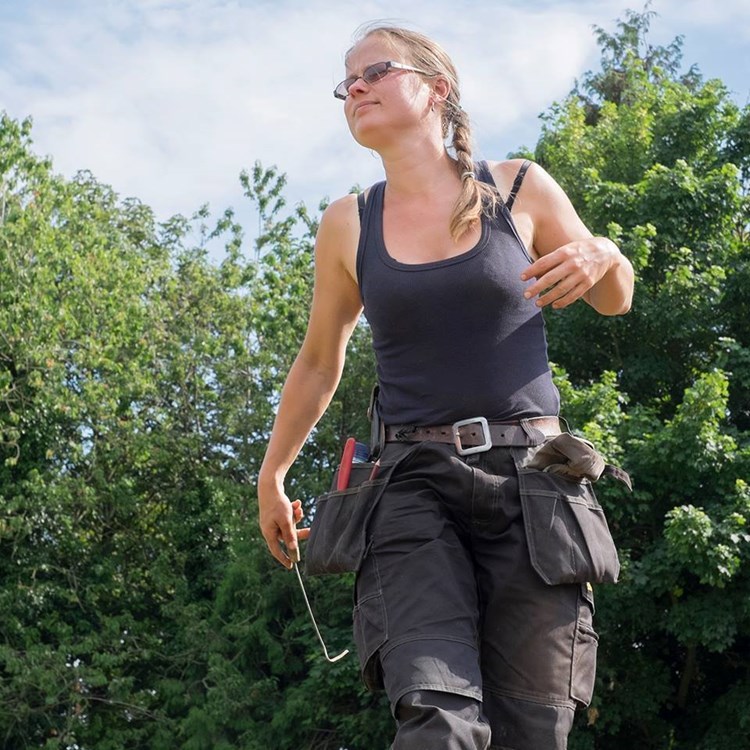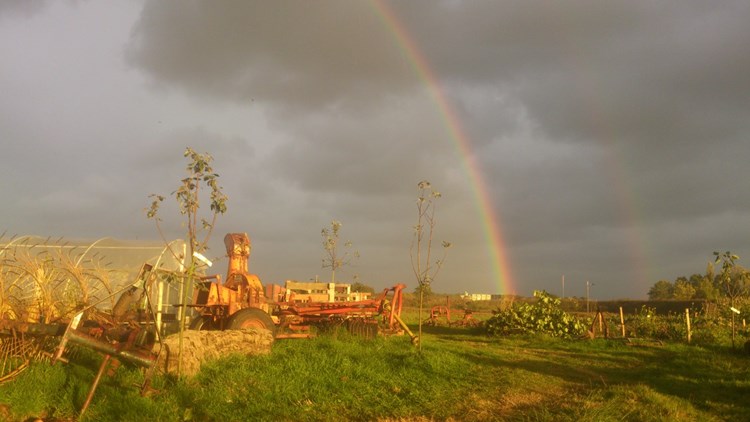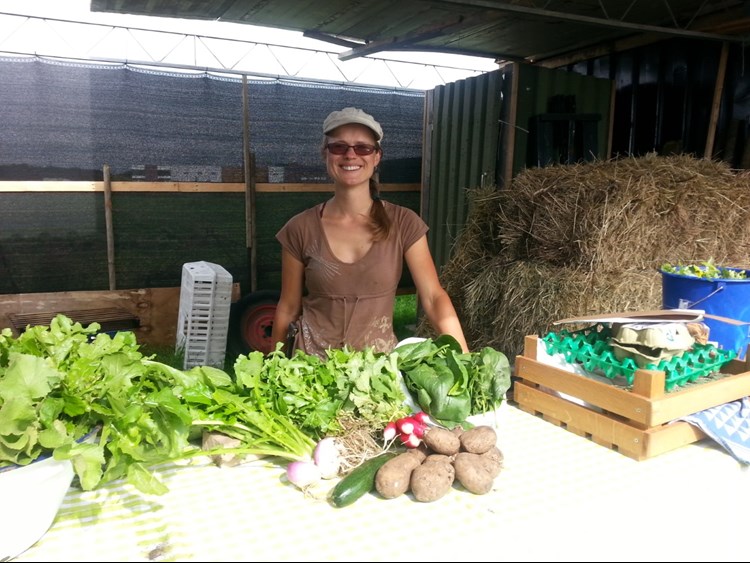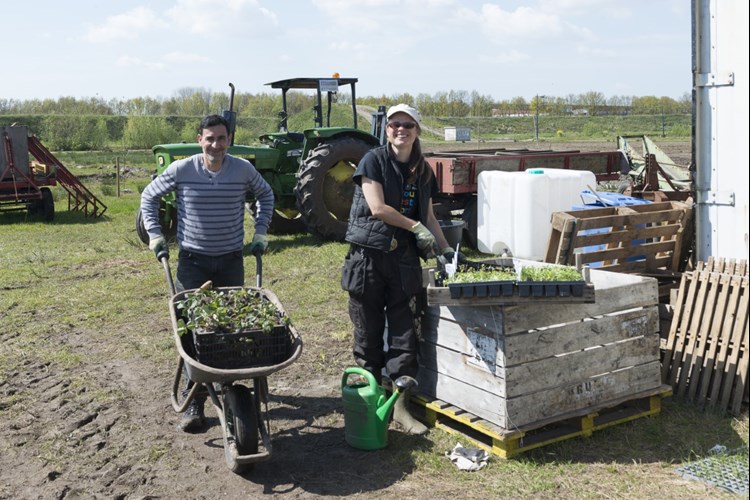CSA – Dutch style
Rachel Harries interviews Jolke de Moel who is running a CSA, Eemstadboerderij in the Netherlands.
Jolke completed a Soil Association Future Growers Apprenticeship at Abbey Home Farm, Gloucestershire in before returning to her homeland to set up a pioneering farming project.
Can you tell us about your early experiences and influences
I was lucky to grow up with a veg garden and attended a Steiner School, so growing my own food was the normal thing to do. But becoming a farmer - no way! I was supposed to go to university and get a good job. I studied forestry but decided it wasn’t for me. I headed off to England and found myself at Abbey Home Farm as a Future Grower apprentice. It was the best thing that could ever happen, as I’d always wanted to learn a trade. There was a lot to learn, and I am still learning every day.
With growing, I feel that I’ve come home.

Tell me more about your business
I run a community supported agriculture (CSA) project on an urban farm in the Netherlands. We are on temporary land owned by the council that is designated for commercial development.
Within two weeks of coming back to the Netherlands, I was speaking at a farming conference about my experiences the UK. A farmer in the audience was looking someone to run a market garden. I was a grower without land, and he had land! He set up the farm us as a non-profit organisation with three businesses working together on the land; field-scale vegetables, chickens, perennial veg and my market gardening CSA.
What is your land like?
Together we took on 2.2ha of new land on 1 March 2016. It was boggy, swampy land but I said let’s go for it! The soil was a poor sandy loam, acidic and very compacted, with lots of standing water. We have no water source and no electricity. I grow on 0.6 hectares.
Tell us about your first season
By April we’d ploughed half the area and had our first potatoes and onions in the ground. But by the end of June we’d lost 90 per cent of crops! We were hit by rain, flooding and hares. I stood crying on my fields. My saving grace was the permanent system along the lines of Jean-Martin Fortier (The Market Gardener), which drained more quickly.

Why CSA?
I’ve really come round to the CSA model. It makes sense. A CSA is a business that customers invest in. People pay in advance, you are sure of an income, and you are sure of your customers.
CSAs as a business have several goals - one is producing good food, and the dividend of your investment is weekly share of the harvest. However, you also invest in a nicer environment where people can feel a sense of purpose and happiness. I also grow flowers so there is beauty and happiness and smiles too.
My customers say I am their farmer and it is their garden. They’d rather come here than go to the zoo.
How many shareholders do you have?
I started with eight shareholders and now I have 23. I’m producing lots of veg and their share of the harvest each week is huge. By June next year, I’ll need 60 shareholders to break even and for my farm to be viable.

What is your marketing strategy?
I was lucky because all the other farmers here had existing connections and routes to market, which I could build on. There is a local organic food coop two other local shops selling organic. The amounts are small but I’m building my markets gradually.
Events have been really important in getting people onto the farm. In May we had an official opening jointly and had lots of articles in local newspapers. In August I had a harvest day with sample tastings in the field.
I don’t do farm deliveries. People come to me, which helps them to feel connected to the farm.
In the Netherlands the organic market share is still low, but the organic message is more commonly recognised, than in the UK.
Do you have any advice for new growers?
I have found it a tremendous help to not be alone. I am self employed but I’m working as part of a wider farming project. We cooperate. We are applying for funding together and doing our promotional activities jointly.

Your top tip for an aspiring grower?
Always expect the unexpected. Need to cater for both drought and floods
What are your plans for the future?
We aren’t permanent on our site. We might have to up and move with two months’ notice. We do not have any buildings, only two shipping containers which we use to store our tools, crates, for a mini kitchen and storing crops. Farming on this land means we have comply with rules on how the buildings have to look. They have to be all neat and tidy.
This is a pilot project, the concept of a mobile CSA, one that can move and make the most of available land even if it is only temporary. If we can prove we can make this work here, then the council will be happy to allocate new land to similar project. We’ve been awarded a grant by the council, to develop this concept, and write a guide to developing a mobile CSA.
I am also starting to help build the national CSA network for the Netherlands, and am a member of the European CSA network Urgenci. So I’m quite busy!
What are you main concerns surrounding the current food system?
Food shouldn’t really travel more than 100 miles and as a small grower it makes no sense to supply to supermarket chains. If we want to survive as a species, we need to be reconnected to our farms and our food. We need to get reconnected to our community.
The connection you have to where you food comes from is such is an essential one.
Links
Eemstad Boerderu on Facebook


